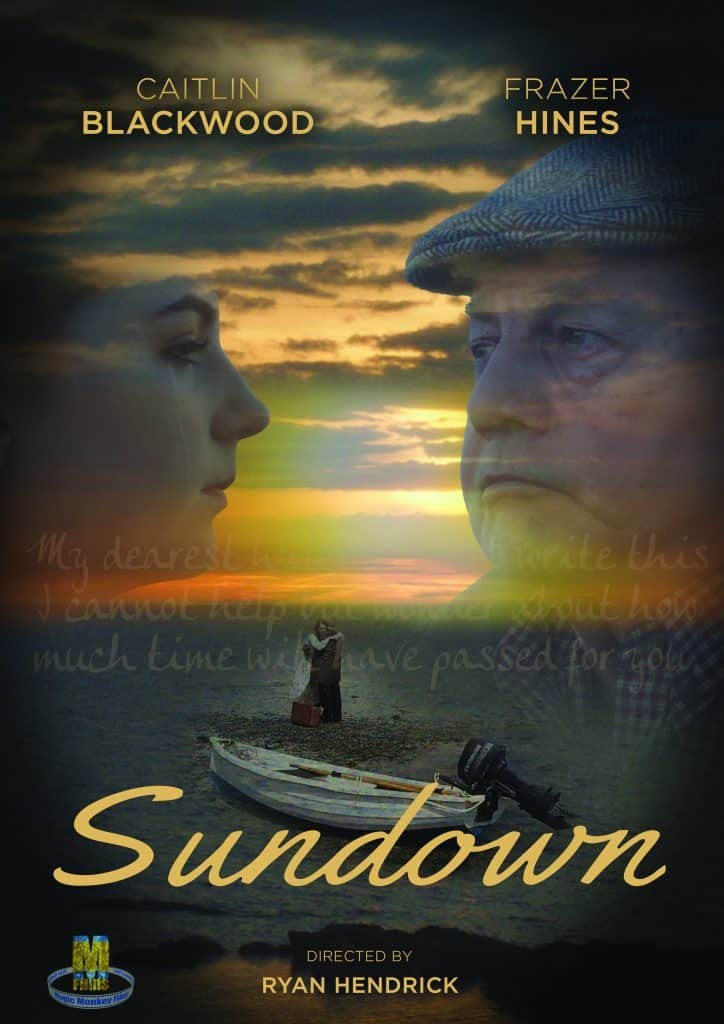We receive a lot of films for consideration at Warped Perspective, and on occasion, we receive material which seems to be quite a way outside of the usual styles and genres we typically feature. This is, of course, no bad thing, and a film we received recently marked itself out as something altogether quieter and subtler than a lot of our usual fare. A thought-provoking, picturesque little film, Sundown (2017) is currently under consideration for a range of upcoming film festivals, and I spoke to director and writer Ryan Hendrick about his project.
Firstly tell us about the story behind the film, and why you wanted to tell it.
I want to tell a story about the conventions of life, death and mortality. My first short film, Choices, had been a more introspective look set at the point of death and was very philosophical; here I wanted to tell a more realistic human connection story. It had occurred to me that in today’s society it is assumed the old and elderly know about death, as if they somehow have learnt how to accept death. I wanted to address that, and I decided to tackle that by having an older character seek insight from someone younger.
The location of the film is very picturesque and clearly important to the story. Tell us how you found it.
The initial concept for Sundown came to me whilst I was visiting the Isle of Iona in the Scottish Hebrides some years ago. I witnessed the most spectacular sunsets night after night. It really added perspective on life and how complicated our lives and society have become, yet there is a simplistic beauty about the natural world that operates on a grand scale. “In that moment I feel timeless,” says Abi in the film, and that was true of my own experience. Every Scottish island is unique and Iona is no exception. It is quiet, tranquil and feels as if it exists outside of the modern world, and that was the atmosphere and setting that this story required.
Can you tell us any more about the character of Abi?
Although we follow William through his own journey, to me, Abi is the central character of Sundown. She exists in various forms and everything driving William on this journey connects directly back to Abi’s own journey. It’s very hard to say in specifics without giving the entire film away. She is part mystery, part emotional truth – to the audience and to William.
What do you hope audiences will take away from your film?
I hope audiences are taken on this journey with these characters, allowing them to experience a slower pace of life that is very deliberately built into the fabric of the film and come out emotionally connected to the characters, their story, the environment and more importantly, I hope it resonates with their own hopes and fears. We all fear our own mortality and all must learn to accept and incorporate it into our existence.
In terms of you as a filmmaker, what are your influences – and where do you hope to go next?
 My influences come straight from my emotions. I always start creatively with an emotion or tone I want to convey before exploring a narrative. I am drawn to all sorts of storylines and themes, but they key for me is to tell them with a sense of romantic optimism. Sundown could easily have been a depressing and stark social realistic arthouse film, but I want to inspire audiences, make them feel a range of emotions.
My influences come straight from my emotions. I always start creatively with an emotion or tone I want to convey before exploring a narrative. I am drawn to all sorts of storylines and themes, but they key for me is to tell them with a sense of romantic optimism. Sundown could easily have been a depressing and stark social realistic arthouse film, but I want to inspire audiences, make them feel a range of emotions.
Next up for me is my first feature Journey Bound, a romantic comedy road movie set in the Scottish Highlands. My love letter to Scotland and to it’s golden era of cinema (Whisky Galore, Local Hero, The Maggie). It’s taken us years to get this film off the ground and I can’t wait to start shooting later this year.
How challenging is making a film in the current climate, and how can filmmakers and fans alike best support this climate?
Independent Cinema especially in the current climate is tough. We exist in a time of mega-large blockbusters and more online content than ever before. Filmmakers needs to knuckle down and understand filmmaking as a business a lot more. I meet more and more emerging filmmakers that don’t have the first idea of tackling this as a business. Fans just need to keep watching films. Go to the cinema and see others films that aren’t the latest super hero blockbuster, take a chance on something you maybe haven’t heard of, especially when scrolling platforms at home like Netflix or Amazon. At the end of the day, as filmmakers we tell our stories for you as much as we do for ourselves.
Thanks to Ryan Hendrick and Magic Monkey films. You can find out more here.
